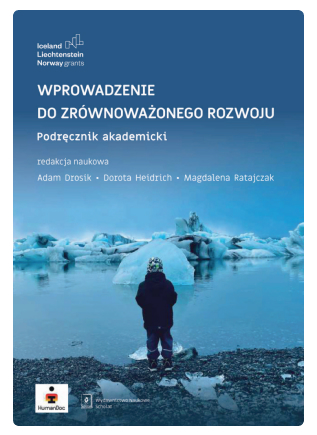’Introduction to Sustainability’. The launch of an audiobook unlike any you have listened to before.








„Introduction to Sustainability. An Academic Manual’ is the first publication in Poland presenting sustainable development topics from a humanistic perspective. It contains 28 chapters which describe, for example, a sustainable approach to space, present the world’s smartest cities analysing their impact on the environment and explain the origins of conflicts over water. Now this manual is also available as an audiobook. Santander Bank Polska is a strategic partner of the project.
Sustainability: today a new subject, tomorrow a new profession
The textbook is a must-have for each of us, as it allows us to understand the mechanisms of a rapidly changing world and offers knowledge that is largely missing from Polish education. It is an initiative of the HumanDoc Foundation and was developed by a team of 11 scientists and academics from the University of Warsaw, the University of Wrocław and the University of Opole.
The manual is an innovative multimedia academic tool. It is intended to support students in learning the subject 'Sustainability', which has been taught in thirteen courses at three universities since October 2022. And the number is set to increase, as more universities are interested in introducing the subject into the compulsory course grid from future semesters. Only by raising awareness will it be possible to make real changes to our lifestyles and the choices we make every day. So far, sustainable development issues have been presented mainly from an environmental perspective. We have presented the topic of sustainable development from a humanistic perspective. Why? We wanted to increase the knowledge and competences of humanities students, the future leaders who will shape the future both locally and nationally.
The handbook is available in print at universities, but also in a digital version – for anyone interested in the subject. It can be downloaded or read online without any restrictions and free of charge, without having to log in or register at https://zr.humandoc.pl
Manual in audiobook format
To make the manual even more accessible, the HumanDoc Foundation, together with the project’s strategic partner Santander Bank Polska, has now prepared and made it available in the form of an audiobook. The narrator is Andrzej Leszczyński and some parts are read by Krystyna Czubówna. The audiobook is also available free of charge at https://zr.humandoc.pl/audiobook/ and on popular audiobook listening platforms in Poland, such as EmpikGo, Storytel, Audioteka, Legimi, Publio and many others.
Creating an audiobook for a textbook promoting sustainable development was a natural step for us to popularise competences in this area. For years, locally and globally, Santander Group has been contributing to the United Nations Sustainable Development Goals 2015-2030 through our business and social commitments, and we also encourage our customers to do so in order to make choices that benefit the environment and local communities with their actions. The audiobook will foster the dissemination of academic knowledge in the field of sustainable development, and thanks to its unique form, the content can now be accessed by anyone, anywhere, anytime.
The multimedia version of the manual, as well as the audiobook can be found at https://zr.humandoc.pl/. Access to the manual and the accompanying reports is completely free of charge.
The audiobook is based on the manual published as part of the project 'Introducing sustainability education at selected universities in Poland’, which benefits from a grant of EUR 188,060.40 provided by Iceland, Liechtenstein and Norway under the EEA Funds 2014-2021. The aim of the project is to introduce the subject of Sustainability at ten faculties at three universities in Poland: University of Warsaw, University of Wrocław and University of Opole. The project 'Introducing education in sustainability at selected universities in Poland’ is co-financed under Polish development cooperation projects of the Ministry of Foreign Affairs of the Republic of Poland.








